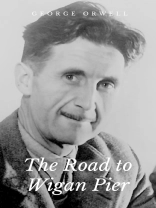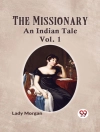‘The Road to Wigan Pier’ is a book by the English writer George Orwell, first published in 1937. The first half of this work documents his sociological investigations of the bleak living conditions among the working class in Lancashire and Yorkshire in the industrial north of England before World War II. The second half is a long essay on his middle-class upbringing, and the development of his political conscience, questioning British attitudes towards socialism. Orwell states plainly that he himself is in favour of socialism, but feels it necessary to point out reasons why many people who would benefit from socialism, and should logically support it, are in practice likely to be strong opponents.
According to Orwell biographer Bernard Crick, publisher Victor Gollancz first tried to persuade Orwell’s agent to allow the Left Book Club edition to consist solely of the descriptive first half of the book. When this was refused Gollancz wrote an introduction to the book. ‘Victor could not bear to reject it, even though his suggestion that the ‘repugnant’ second half should be omitted from the Club edition was turned down. On this occasion Victor, albeit nervously, did overrule Communist Party objections in favour of his publishing instinct. His compromise was to publish the book with [an introduction] full of good criticism, unfair criticism, and half-truths.’
The book grapples ‘with the social and historical reality of Depression suffering in the north of England, – Orwell does not wish merely to enumerate evils and injustices, but to break through what he regards as middle-class oblivion, – Orwell’s corrective to such falsity comes first by immersion of his own body – a supreme measure of truth for Orwell – directly into the experience of misery.’
लेखक के बारे में
Eric Arthur Blair (25 June 1903 – 21 January 1950), known by his pen name George Orwell, was an English novelist, essayist, journalist and critic. His work is characterised by lucid prose, biting social criticism, opposition to totalitarianism, and outspoken support of democratic socialism. As a writer, Orwell produced literary criticism and poetry, fiction and polemical journalism; and is best known for the allegorical novella ‘Animal Farm’ (1945) and the dystopian novel ‘Nineteen Eighty-Four’ (1949).












